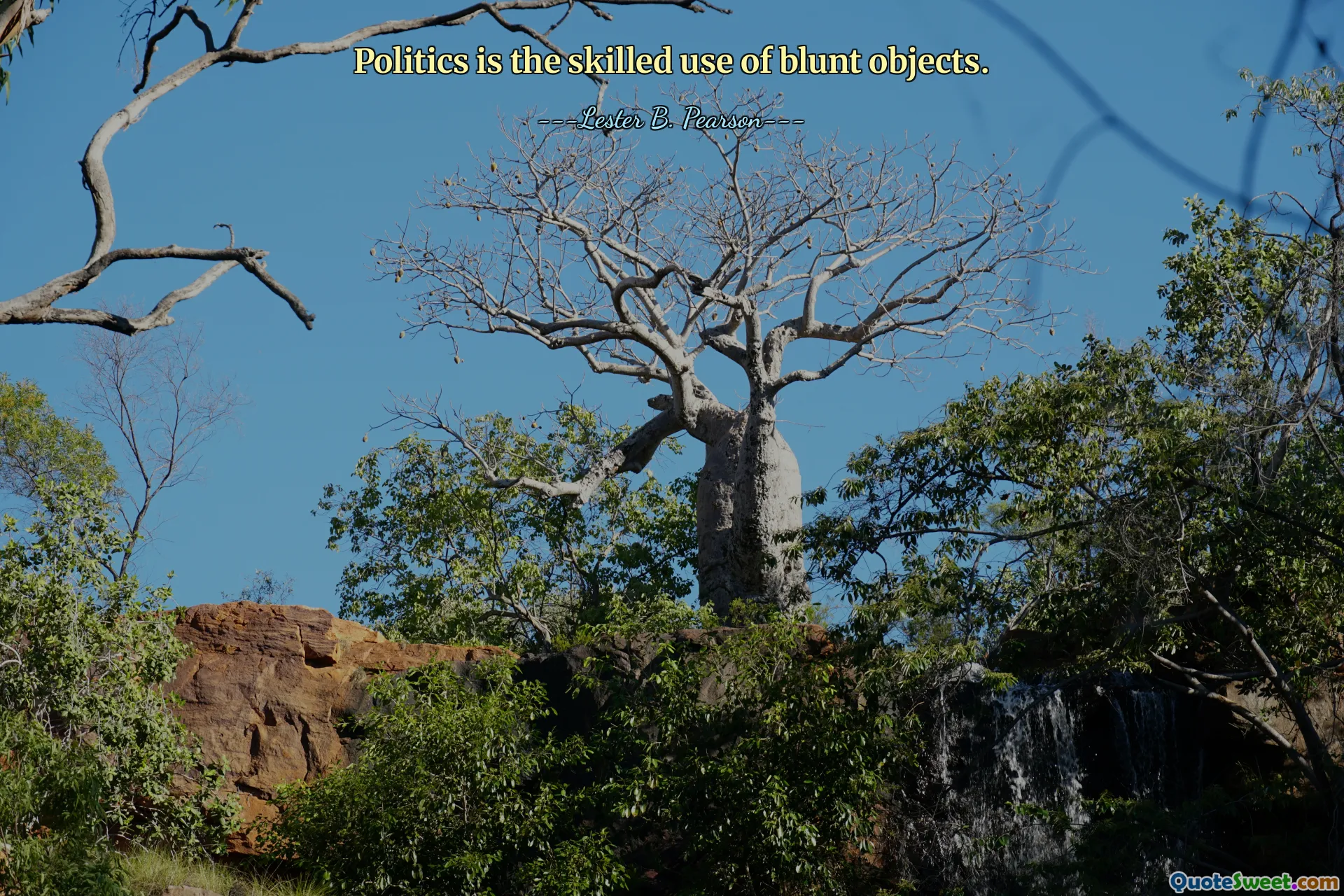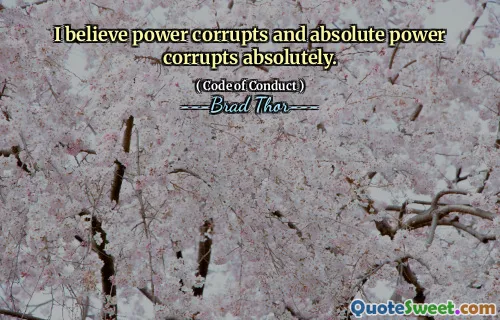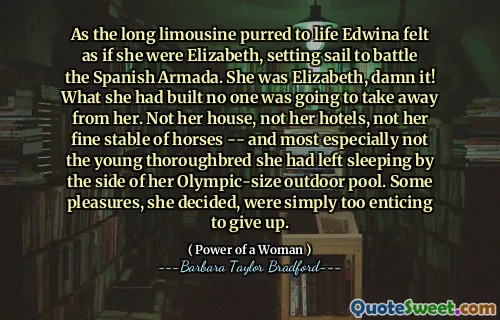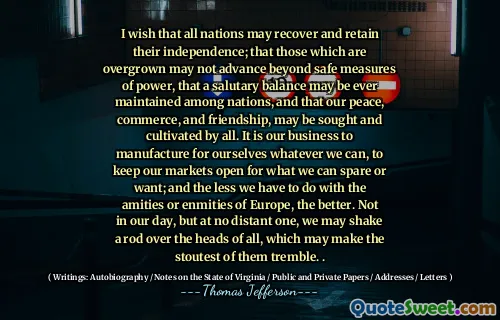
Politics is the skilled use of blunt objects.
This quote sharply encapsulates the often harsh and confrontational nature of politics. It suggests that, at its core, political maneuvering frequently relies on straightforward, forceful methods rather than subtlety or finesse. Politics is sometimes perceived as a game of power where the most blunt or direct approaches—whether through means of persuasion, pressure, or even coercion—are employed to achieve goals. Such a perspective invites us to consider the reality that political processes can be power-driven, where diplomacy and tact are sometimes replaced by displays of strength and dominance.
The metaphor of blunt objects symbolizes forcefulness and simplicity, highlighting that complex issues are often addressed with straightforward and robust strategies. This view can be both a critique and an acknowledgment of the nature of real-world politics, where negotiation and consensus-building are not always feasible or effective, especially in highly polarized or conflict-prone environments. The quote raises important questions about the ethics of political conduct: Is it acceptable to rely on forceful tactics for the sake of expediency or effectiveness? Or does this approach diminish the integrity of political discourse?
Reflecting on this statement, one might consider the balance between strength and diplomacy. While forceful tactics can sometimes be necessary to break deadlocks or protect interests, they must be wielded responsibly. The challenge lies in avoiding the normalization of violence or coercion as the primary means of political engagement. Healthy politics ideally involves a mix of strategy, negotiation, and, at times, assertiveness, but this quote reminds us that the line can be dangerously blurred when brute force takes center stage. Ultimately, it underscores the importance of mindful leadership and the ethical considerations that come with wielding power.











